Reviews
Bobcat Goldthwaite
USA, 2009
Credits
Review by Katherine Follett
Posted on 26 May 2009
Source 35mm print
Categories The 2009 Independent Film Festival of Boston
Kyle is an irredeemable asshole. He’s rude, callous, stupid, abusive, bigoted, and destructive. He can be funny in a Bad Santa kind of way, but only to a spectator—not to anyone in the room with him, and he has few friends. He’s also unrelentingly horny, and is so jaded by Internet porn that he results to coprophilia and self-strangulation to get off. When a bout of autoerotic asphyxiation goes too far, Kyle’s father Lance, a failed writer and professionally and romantically frustrated teacher, makes an irrevocable, but in the context, justified decision. He clears the porn from the computer and repositions his son’s body so the strangulation apparently resulted from a hanging. He then pens a profound, moving, and apparently endlessly compelling suicide note. When the note gets out, people start to re-imagine the now “suicidal” Kyle in a much more complimentary light. Suddenly, Kyle was deep, mysterious, in pain. Buoyed by the attention, Lance fabricates a “journal” of the boy’s acerbically observant spiral into suicide. Compelled by a sort of reverse schadenfreude, a deliciously wallowable guilt, the entire school, and later the town and possibly even the nation, adopts Kyle as a sort of lost literary hero. And his father, now in it up to his neck, must decide whether to continue with a lie that makes everybody feel good.
World’s Greatest Dad employs much of the same techniques as Bobcat Goldthwaite’s previous film, Sleeping Dogs Lie, which deals with similar themes of secrecy, humiliation, and honesty. (It makes you wonder what dark secrets lie in Bobcat Goldthwaite’s past.) The film is sort of macro-accomplished, but micro-mediocre. Many scenes unfold with a certain transparency: 1. Dad and Art Teacher having a good time together. 2. Art Teacher looking like she likes Other Creative Writing Teacher better. 3. Other Creative Writing Teacher gets story published in the New Yorker. There’s a little too much “tell” and not enough “show” in the dialogue, the pacing, and the plot—the strings, and sometimes even the filmmaker’s hands, remain visible, and it’s difficult to get lost in the reality of the film. But the stakes and the momentum of the plot are so high that you can’t help but salivate for what comes next. Goldthwaite is sort of an anti-David Lynch: the atmosphere is unremarkable, but the force of the plot is driving and clear.
Robin Williams is in “understated” mode as Lance, with an admirable ambiguity that keeps the audience in a thrilling limbo as the lie grows legs. When invited to speak on an Oprah-style show about his son’s supposed beautiful pathos, he breaks into uncontrollable giggle-sobs. When Kyle’s only friend, a chronic pushover, starts to suspect something, Williams restrains the obvious impulse to give off either nervous fear or defensive bravado, opting instead for a nearly unreadable neutral concern. He is almost unapologetically giddy when Kyle’s “journal” lands him a book deal, but dissolves into tears at the sight of porno mags at a newsstand. But while this performance is exactly what the film needs to carry its tension, I don’t think it shifts tone enough to nail home Lance’s final decision about whether or not to come clean. Most of the other performances are done well if, like the film’s writing, a bit obviously. Kyle, is basically what would happen if you took the uncontrollably foul-mouthed heroes of Judd Apatow’s films, excised their sweetness, and set them loose in the real world where what people say matters. The students who adopt the recently deceased Kyle manage to be both stereotypes (which don’t get me wrong, they really are a convenient shorthand) and individuals. The cameos, pure audience in-jokes like the director himself, Nirvana bassist Krist Novoselich, and a crack-timed Bruce Hornsby, are used just sparingly enough to be a treat.
Goldthwaite as a director seems almost a polar opposite of Goldthwaite the character/stand-up comedian from the 80’s. He’s got intellectual, moral, and emotional thoughtfulness, but not much unique presentation or style; this film in particular is a work whose craft is pedestrian, but whose intentions and ideas are compelling enough to make it riveting. Though fans of powerfully envisioned cinema will find World’s Greatest Dad leaden and possibly inept, I for one welcome a brilliant story told in unremarkable scenes.
More The 2009 Independent Film Festival of Boston
-

Johnny Cash at Folsom Prison
2008 -

I Need That Record!
2008 -

Children of Invention
2009 -
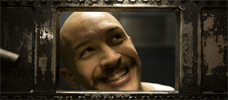
Bronson
2009 -
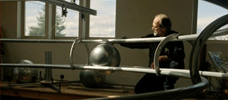
Trimpin
2009 -
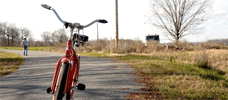
Invisible Girlfriend
2009 -

500 Days of Summer
2009 -
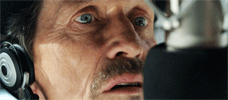
Pontypool
2008 -

Children of Invention
2009 -

Unmistaken Child
2008 -
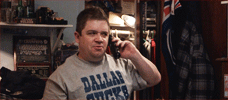
Big Fan
2009 -
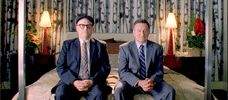
World’s Greatest Dad
2009 -
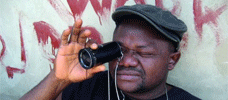
Nollywood Babylon
2008 -
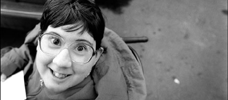
Shooting Beauty
2009 -
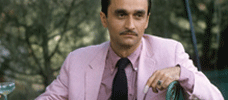
I Knew It Was You
2009 -
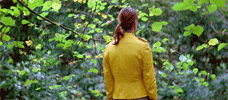
Helen
2008 -
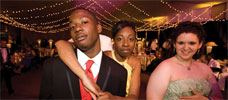
Prom Night in Mississippi
2008 -
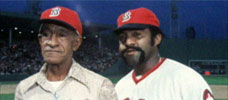
The Lost Son of Havana
2009 -

Mine
2009 -
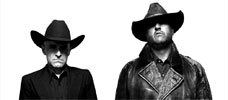
Stingray Sam
2009
We don’t do comments anymore, but you may contact us here or find us on Twitter or Facebook.



